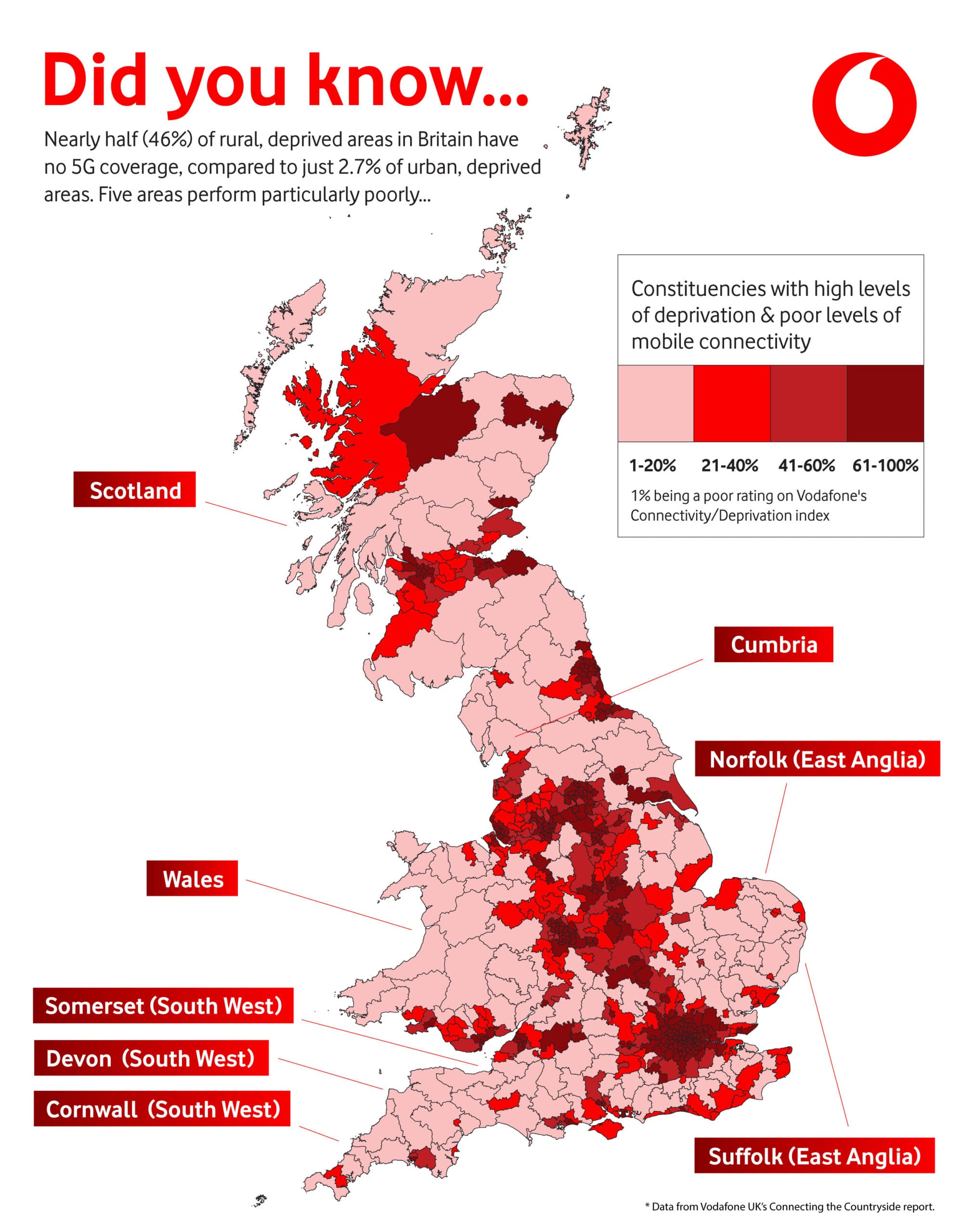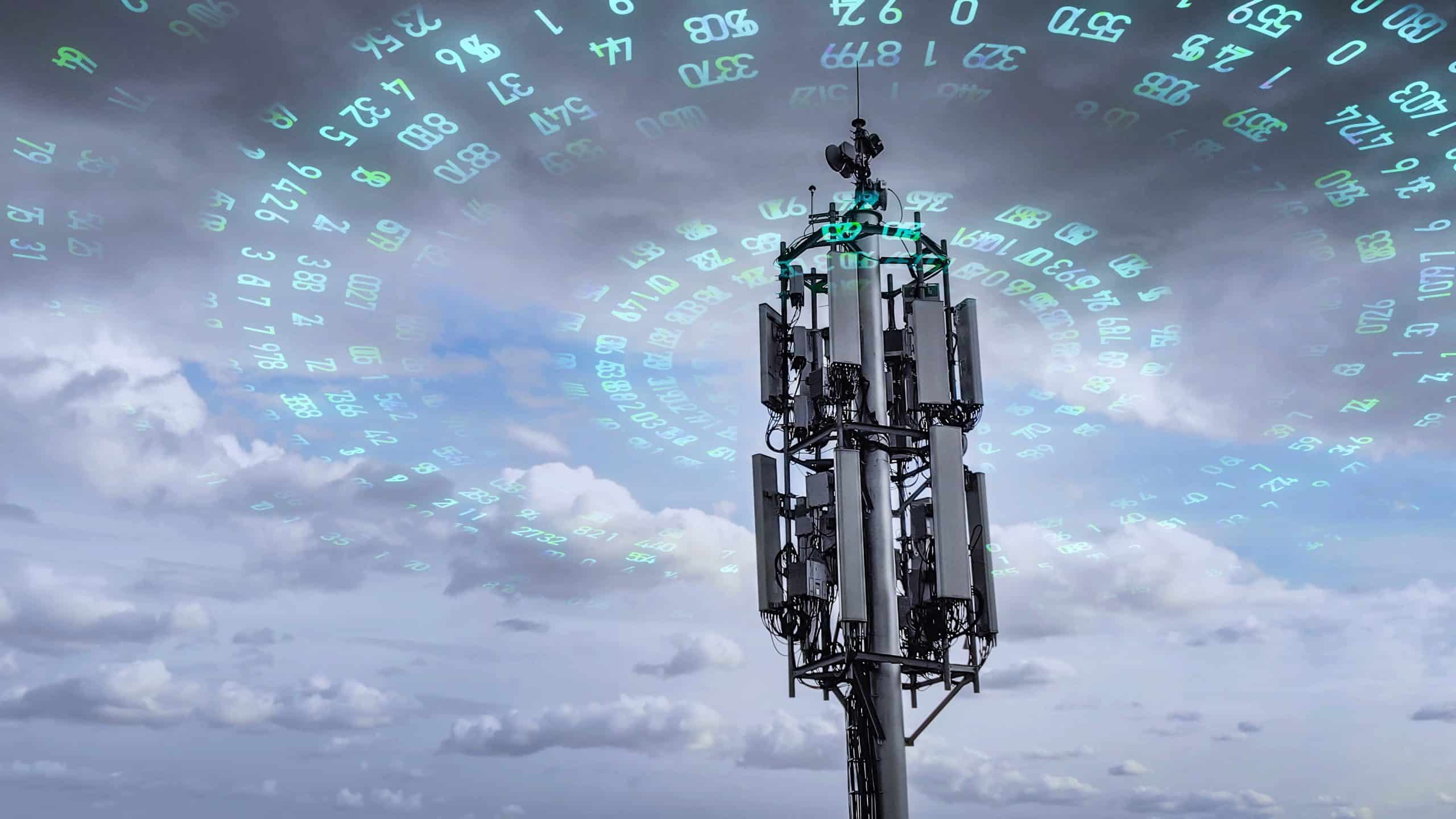
In a recent study commissioned by Vodafone UK and conducted by WPI Economics, a stark digital divide has been unveiled in one of the world's most developed nations. The report, aptly titled 'Connecting the Countryside,' highlights the glaring disparity in 5G accessibility between rural and urban areas in Britain. The findings are eye-opening, revealing a chasm that demands our attention and immediate action.
A profound gap in 5G connectivity lies at the heart of this issue. In rural deprived areas, a staggering 46 percent are mired in what the report terms "5G not-spots." In stark contrast, urban deprived communities fare significantly better, with just 2.7 percent facing similar connectivity challenges. This digital divide is not merely a statistic but a stark representation of inequality in the digital age.
The study singles out five regions in Britain where the intersection of connectivity gaps and high deprivation levels paints a bleak picture. These areas are Scotland, Wales, East Anglia, Cumbria, and the South-West.
Take, for instance, rural constituencies in Wales, where more than half—53.8 percent—find themselves in total 5G not-spots. This leaves approximately 838,000 people in deprived rural areas without access to the transformative benefits that 5G technology could offer.
The implications of this digital disparity are profound. Those living in deprived rural areas miss out on the transformative benefits that 5G technology could bring to their lives. From enhanced access to healthcare to expanded educational opportunities, the absence of reliable connectivity stifles progress in these communities.
The report underscores the urgent need for investments in digital infrastructure. Ensuring equitable access to 5G technology is not just about the present but also about empowering these communities with essential digital skills for the future.
One area where 5G can make a significant difference is healthcare. In remote and hard-to-reach areas, fast 5G infrastructure can facilitate pre-emptive and swift responses to health emergencies, potentially saving lives.
Also, 5G technology helps deliver medicines faster with Vodafone's Skyport drone service, reducing delivery time from 36 hours to 15 minutes.
Access to 5G technology can open up new horizons in education. Virtual classrooms in rural areas could pave the way for distance learning opportunities and specialized qualifications, significantly broadening the horizons for residents.
In agricultural regions, 5G-enabled sensors can provide valuable data, leading to higher yields and improved crop quality, with up to 15 percent efficiency improvements. This not only benefits farmers but also contributes to food security and sustainability.

As highlighted by this report, the digital divide in the UK is a pressing issue that requires immediate attention. Access to 5G technology should not be a privilege reserved for urban areas but a fundamental right for all citizens, regardless of where they live. Bridging this divide improves the quality of life for those in rural and deprived communities and strengthens the nation. It's time for investment, empowerment, and a commitment to a more equitable digital future.
The digital divide is not merely a matter of access to technology; it's about access to opportunities and essential services. The divide is especially pronounced when it comes to 5G connectivity, which has the potential to revolutionize various aspects of our lives.
The study conducted by Vodafone UK and WPI Economics sheds light on the significant disparities in 5G accessibility between rural and urban areas in the UK. The numbers are staggering: 46 percent of rural deprived areas in the UK are considered "5G not-spots," while the figure drops dramatically to just 2.7 percent in urban deprived communities. This stark contrast highlights the extent of the digital divide that exists within the country.
The impact of this digital divide is far-reaching. In rural areas where 5G connectivity is lacking, residents are denied access to crucial services and opportunities. Healthcare, for example, is greatly affected.
In remote and hard-to-reach areas, fast 5G infrastructure can facilitate pre-emptive and swift responses to health emergencies. This capability can be life-saving, particularly when time is of the essence.
Additionally, 5G technology enables efficient delivery of medicines through innovative programs like Vodafone's Skyport drone service. This reduces delivery times from an astonishing 36 hours to just 15 minutes, ensuring timely access to vital medications.
Education is another area profoundly impacted by the digital divide. The potential for virtual classrooms in rural areas, made possible by 5G, opens up a world of distance learning opportunities. It allows residents to access specialized qualifications and broaden their horizons, regardless of geographical location. In a world where education is increasingly digital, this divide threatens to leave many behind.
The agricultural sector, too, stands to benefit significantly from 5G technology. 5G-enabled sensors can provide valuable data to farmers, leading to higher yields and improved crop quality. The efficiency improvements can be as high as 15 percent, which benefits individual farmers and contributes to overall food security and sustainability.
The urgent need for investments in digital infrastructure cannot be overstated. Bridging the digital divide is not just about addressing the present challenges; it's about preparing communities for a digital future. It's about ensuring that all citizens can access the opportunities and services that 5G can provide regardless of where they live.
In conclusion, the digital divide in the UK, particularly concerning 5G accessibility, is a pressing issue that requires immediate attention. It's a matter of equity, progress, and national well-being. Investing in digital infrastructure and empowering rural and deprived communities with essential digital skills can bridge this divide and pave the way for a more equitable and prosperous digital future for all.


